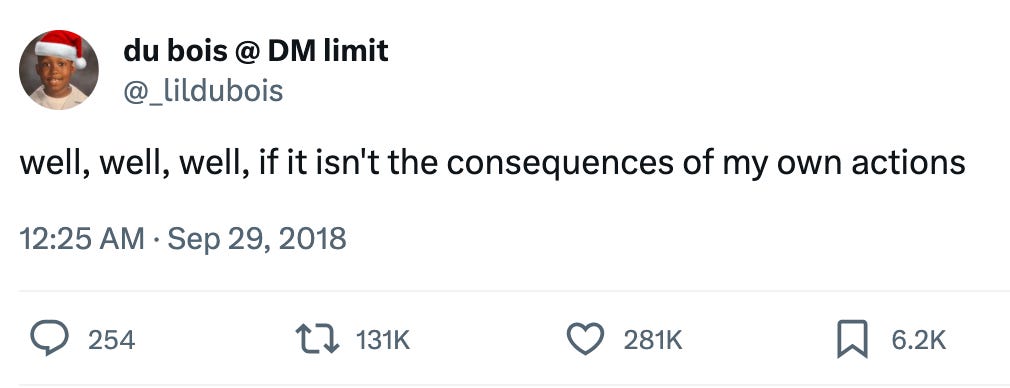World Vision case teases a post-Bostock world for religious groups
What is required of religious groups in employment matters since the 2020 landmark case? The fight is just beginning
It’s the end of the semester, which means I’m up to my eyeballs in grading. And the best part? I have nobody to blame but myself — or, to put it another way:
Though grading is tedious and often repetitive, there are bright spots in evaluating the ways in which students have grown throughout a semester. In this term’s Constitutional Law class, for example, I asked to students to author Supreme Court-style opinions about a hypothetical conflict involving legislative regulation of social media. Several of these opinions made me smile as I read them. Consider this selection from a fictional dissenting opinion, written by a college freshman:
Social media platforms do not operate as nonprofits. They are business entities that buy, sell, and advertise across state lines. In fact, because they exist online, it can be argued that their engagement in interstate commerce is of a more effective and influential kind than their more tangible counterparts. The majority’s blatant refusal to accept this only betrays their unjust affinity for a position that lets private corporations do as they please regardless of the social damage they cause.
So while grading can be a chore, I wouldn’t try my job for anything.1
Last month a federal judge issued what will probably the first decision of many testing the boundaries of a landmark employment discrimination ruling. That case, Bostock v. Clayton County, held that sexual orientation and gender identity are covered by the Civil Rights Act for the purposes of employment law. I wrote about that decision—and its implications for religious freedom—here, and here.
Last month’s decision involved a woman who sued the Christian humanitarian group World Vision after it rescinded a customer service job offer upon learning the woman was in a same-sex marriage. In his decision, Judge James Robart2 declared that World Vision’s definition of marriage as between a man and a woman constitutes unlawful employment discrimination. According to reporting from Christianity Today, the decision “is not a final ruling in the case but means the issue would go to trial to determine damages.”
Interestingly, the same judge earlier ruled in favor of World Vision, declaring that the ministerial exception shielded the group from employment discrimination claims such as this one. But he overturned that earlier decision after being asked to reconsider the scope of his ruling. He wrote:
“Applying the ministerial exception to the principally administrative customer service representative position would expand the exception beyond its intended scope, erasing any distinction between roles with mere religious components and those with ‘key’ ministerial responsibilities.”
In 2012, the Supreme Court unanimously held that churches and related entities—in that case, a church-affiliated school—were exempt from employment discrimination claims involving teachers deemed to have a ministerial function. Nearly 10 years later the Court broadened the ministerial exception to seemingly encompass any employee characterized as serving the institution’s religious mission. Whether a customer service position at World Vision is covered under this exception will be a key question as this case progresses.
Simply put, there is a long way to go before settling the broader question of whether religious organizations like World Vision are exempt from the legal rules governing employment. Don’t bet against the Supreme Court stepping in on this (or a related) case in the years ahead.
Actually, if I was offered a Shohei Ohtani-style deal to do something else, I’d have to at least consider it.
Judge Robart has served in his position since 2004, after his appointment by President George W. Bush.




